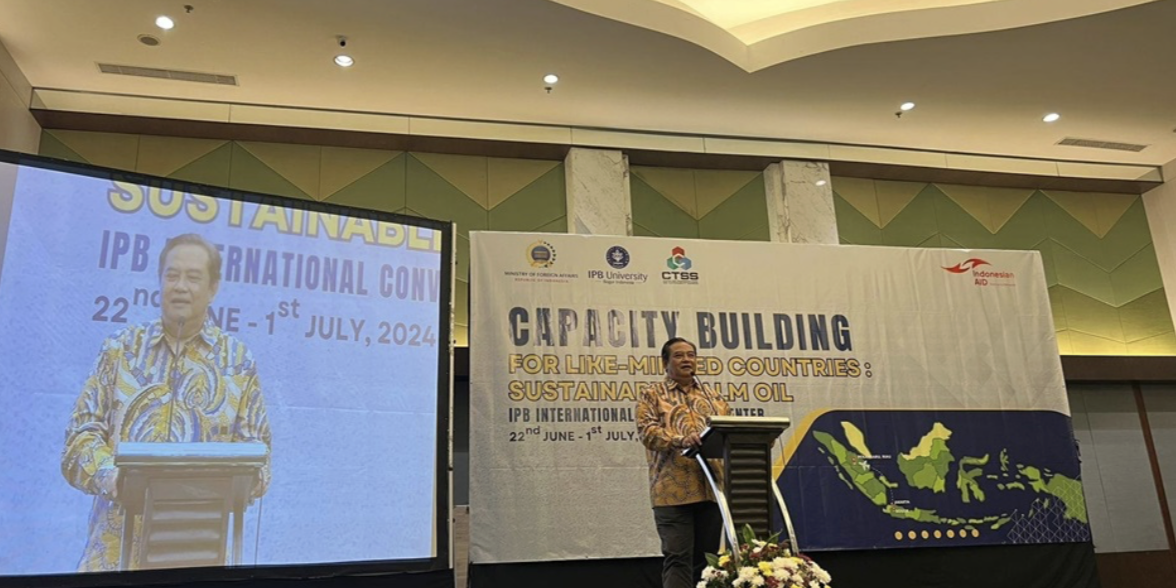Thirty-six sustainable agriculture experts from 17 like- minded countries gathered in Bogor to share best practices in Capacity Enhancement Training for Sustainable Oil Palm Management based on Smallholder Agriculture (24/6).
The training, held from June 22 to July 2, 2024, is a collaboration between the Ministry of Foreign Affairs, Bogor Agricultural Institute (IPB), and the International Development Cooperation Fund (LDKPI). It is attended by experts from various backgrounds, including researchers, policymakers, business practitioners, and diplomats.
They come from developing countries that produce crucial global food commodities such as palm oil, as well as other important agricultural commodities for global food security, including coffee, cocoa, rubber, timber, soybeans, and beef.
The aim was to provide participants with broader perspective on cross-commodity smallholder agriculture.
Director General Umar Hadi emphasized that smallholder farmers heavily rely on palm oil agriculture. The future challenge is ensuring that these farmers can survive and thrive in the agricultural sector.
“The exchange of experiences and best practices is necessary to ensure that palm oil commodities can endure in the current global market era,” he concluded.
Vice Rector of IPB for Research, Innovation, and Agromaritime Community Development also conveyed that IPB University has been heavily involved in strengthening local stakeholders of palm oil and contributes in achievement of sustainability goals in palm oil sector.
“It is hoped that this training will also enhance Indonesia’s cooperation with Global South countries through collaborations, research, and education,” he concluded.
Throughout the training, they exchanged ideas on how to develop sustainable smallholder agriculture to support global food supply chain resilience in their respective countries.
They engaged with Indonesian sustainable agriculture experts at the IPB Bogor campus and visited exemplary smallholder oil palm plantations in Riau Province.
Indonesia’s training grant to like-minded countries serves as a gesture of solidarity to nations facing similar challenges. This training is expected to provide means for sharing knowledge, best practices and lesson-learned from each other, as well as to formulate aspirations from producing countries worthy of being heard by global communities.
Source: kemlu.co.id
Disclaimer
This article may contain copyrighted material, the use of which may not have been pre-authorized by the copyright owner. This material is made available for the purpose of giving information and knowledge. The material contained on the Astra Agro website distributed without profit. If you are interested in using copyrighted material from this material for any reason that goes beyond ‘fair use’, you must first obtain permission from the original source










